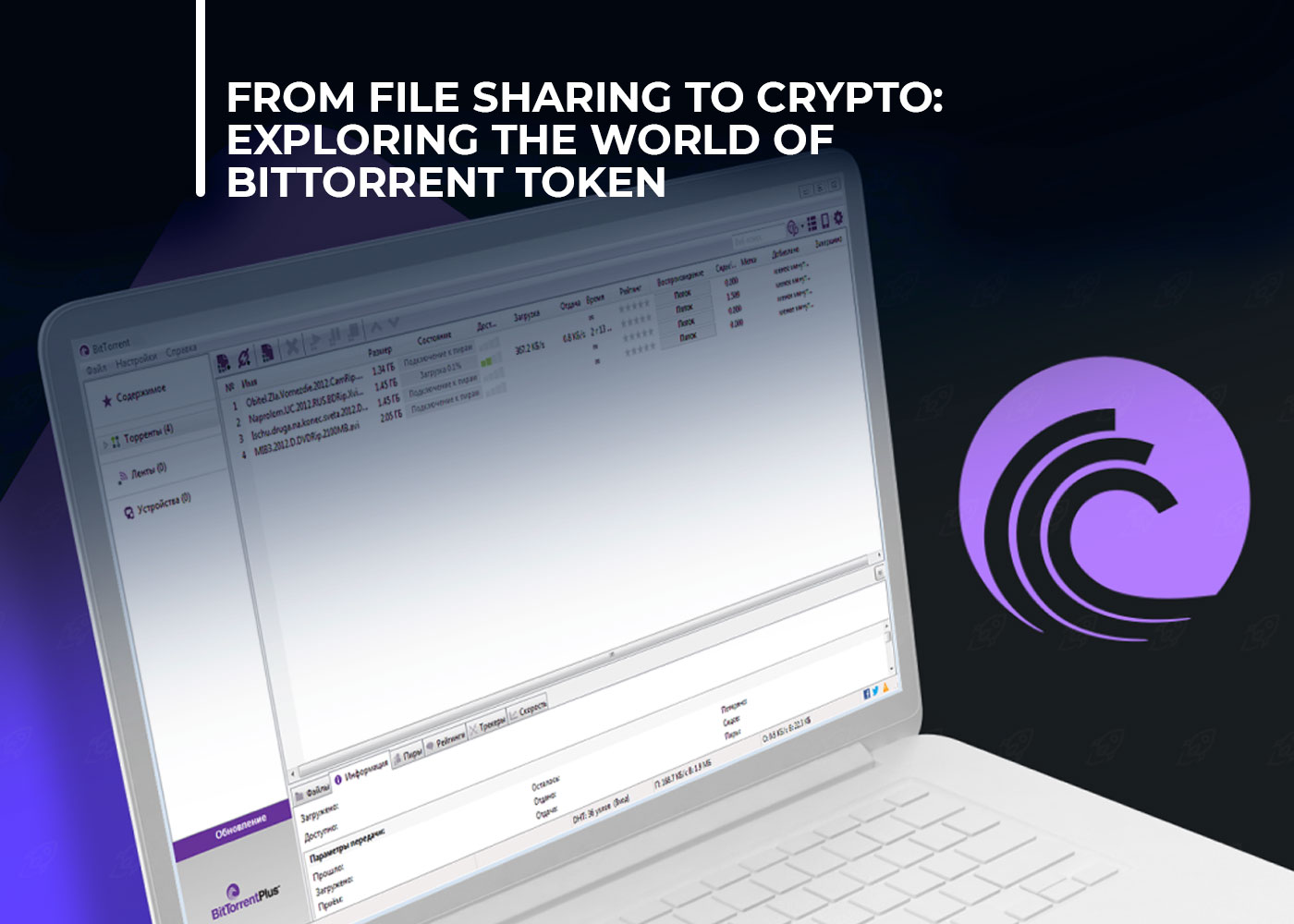BitTorrent is a system that has been running stably for quite some time. BitTorrent is a major peer-to-peer (P2P) network for file sharing and torrenting that has become increasingly free and decentralized in recent years.
BitTorrent was founded in July 2001 and was acquired by blockchain platform TRON in July 2018. Since the acquisition, BitTorrent has introduced several new features, and in February 2019, it issued BTT, a native cryptocurrency token. BTT was launched on the TRON blockchain under the TRC-10 standard. BitTorrent is currently the “largest decentralized P2P communication protocol” in the world, according to official documents.
Contents
Who Developed BitTorrent?
The original BitTorrent was developed by Bram Cohen, a developer and entrepreneur who later became well-known in the Bitcoin industry. Cohen explained that he created BitTorrent to replace the outdated entertainment industry that made acquiring content cumbersome and costly. Cohen argues that the network does not violate copyright law because it allows users to share media such as music and movies.
How Many Years Ago Was BitTorrent Founded?
In 2018, TRON completed its acquisition of BitTorrent, putting BitTorrent under the management of Justin Sun. Sun is known for promoting both TRON as a cryptocurrency and blockchain technology, spending $4.5 million on a charity auction to have lunch with Warren Buffett (a famous anti-crypto figure) and talk to him about cryptocurrencies.
Since the BTT token is issued on TRON’s blockchain, TRON is also responsible for integrating the cryptocurrency into BitTorrent. This action was part of TRON’s efforts to bring more decentralized features to its platform.

What Are The Goals of BitTorrent?
The first goal of BitTorrent was to change the traditional entertainment industry and the way customers receive the material. The main target was expensive and inefficient distribution networks, and the original inventor, Bram Cohen, recognized the benefits of allowing Internet users to share material directly with each other. BitTorrent became the dominant P2P file-sharing platform in the early 2000s, followed by TRON in 2018. With TRON, BitTorrent has expanded its user base to include people interested in decentralized solutions and cryptocurrencies in addition to its existing user base.
Pros and Cons
Here are some pros and cons of BitTorrent Token (BTT):
Pros
- Incentivizes file sharing: BTT is intended to incentivize users to seed (share) files by rewarding them with tokens. This could help to increase the availability and download speeds of files on the BitTorrent platform.
- Potential for micropayments: BTT’s low transaction fees and fast confirmation times make it well-suited for micropayments, which could be useful for paying for premium content or other features on the BitTorrent platform.
- Backed by TRON: BitTorrent was acquired by TRON, a blockchain platform with a strong development team and resources. This provides some stability and credibility to the BTT ecosystem.
Cons
- Limited use case: BTT’s primary use case is currently limited to the BitTorrent platform, which may limit its potential adoption and utility.
- Regulatory uncertainty: As with any cryptocurrency, there is a risk of regulatory intervention, especially given BitTorrent’s history with piracy concerns.
- Volatility: Like many cryptocurrencies, BTT’s value can be highly volatile, which can be a concern for investors or users who need stable pricing.
- Limited rewards: The rewards for seeding files with BTT currently need to be bigger, which may limit the incentive for users to participate.
While BitTorrent Token has some potential benefits, it also has limitations and risks that may impact its adoption and long-term viability.
You may be interested in: Mistake of the Bard AI Causes Google to Lose $100 Billion in the Market

